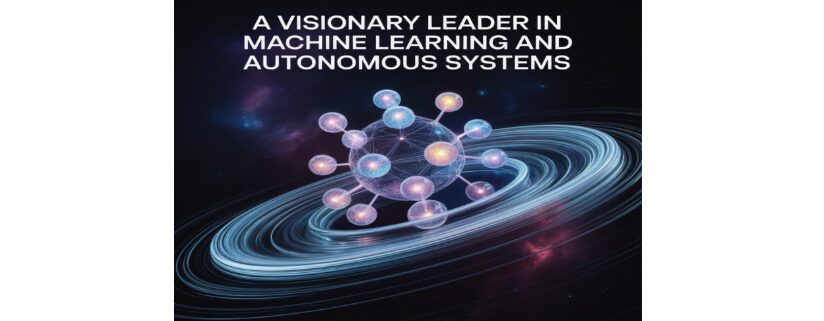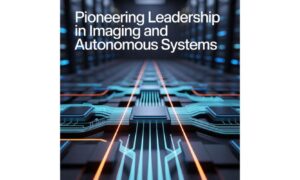Rajani Acharya stands as a beacon of leadership and innovation in the field of machine learning, with a significant footprint in the autonomous vehicle and robotics sectors. As an Engineering Manager at Luminar Technologies, her work at the intersection of AI, safety-critical systems, and cutting-edge perception technologies has placed her at the forefront of modern engineering. Rajani’s journey, marked by relentless pursuit of technical excellence and team empowerment, reflects her influential role in shaping the future of intelligent systems.
Early Life and Academic Foundation
Rajani’s academic journey began with a Bachelor’s degree in Electronics and Communication from Visveswarya Technological University, where she graduated with a commendable GPA of 4.0. Her passion for complex systems and signal processing led her to the University of Southern California, where she earned her Master of Science in Electrical Engineering, graduating with a perfect 3.7 GPA.
These academic experiences laid a strong foundation for her career, equipping her with deep knowledge in embedded systems, computer vision, and algorithm design. The theoretical rigor and research environment at USC, coupled with hands-on projects, served as the launchpad for her entry into the high-stakes world of machine learning and system software engineering.
Professional Journey
Rajani’s professional journey began at Bharat Electronics Limited in India, where she developed radar signal processing algorithms that enhanced target detection capabilities. This early exposure to defense-grade systems honed her skills in real-time signal interpretation and precision engineering.
Her transition to AIRBUS Engineering Center saw her contributing to flight management simulations, fine-tuning descent prediction modules using MATLAB and Simulink. These roles illustrated her growing aptitude for large-scale, mission-critical software development.
Upon moving to the United States, Rajani continued her ascent at General Motors, Bosch, and eventually Nvidia. At Bosch, she worked extensively on computer vision systems for Advanced Driver Assistance Systems (ADAS), contributing to innovations in line detection, sensor fusion, and lane-change feasibility using surround vision systems.
At Nvidia, Rajani developed novel 3D pose estimation algorithms and optimized stereo vision pipelines using GPU acceleration. Her work significantly improved depth accuracy and reduced processing latency critical advances in industrial robotics and ADAS.
Leadership and Innovation
In 2022, Rajani transitioned within Luminar Technologies as an Engineering Manager. Here, her leadership style rooted in mentorship, cross-functional collaboration, and strategic planning—flourished. She built and led a high-performing team of machine learning engineers, focusing on safety-critical perception systems for autonomous vehicles.
Under her guidance, Luminar’s perception systems achieved industry-leading detection rates, even in adverse conditions. Rajani introduced advanced techniques such as “Segment Anything” for automated ground truth generation, enhancing data quality and expediting model training. She also pioneered real-time visualization tools and evaluation frameworks, fostering a proactive monitoring culture across the organization.
Her leadership emphasizes not only technical rigor but also inclusivity, innovation, and continuous learning. By aligning engineering initiatives with safety standards like ASPICE and promoting seamless integration across hardware and software teams, she has ensured both product excellence and organizational efficiency.
Notable Achievements
Rajani’s career is punctuated by impactful achievements. She holds multiple U.S. and European patents, including those for trailer guidance systems, object detection using multi-modal data, and environment modeling in autonomous systems. These innovations demonstrate her ability to translate theoretical advances into real-world applications with commercial and societal relevance.
At Luminar, her work directly contributed to surpassing critical performance benchmarks and establishing the company’s perception system as a top-tier solution in the market. Her influence extends beyond her own team, as she regularly engages with upper management and external stakeholders, aligning technical roadmaps with broader business goals.
Academic Contributions
Rajani bridges the gap between academic rigor and industrial application. Her patented work stems from a deep understanding of signal processing, computer vision, and AI algorithms, often inspired by research trends and refined through industry challenges. Although she is not a full-time academic, her contributions in applied research are invaluable to the academic and engineering communities alike.
Her ability to bring theoretical insights into deployment-ready technologies, particularly in safety-sensitive environments, exemplifies the practical power of academic-industry synergy.
Future Vision and Impact
Rajani continues to push the boundaries of machine learning applications in autonomous systems. Her vision for the future includes more adaptive, reliable, and scalable AI models that operate safely in diverse real-world conditions. As she mentors the next generation of engineers and leads strategic projects, her influence is helping to define the ethical, technical, and operational standards of AI in mobility.
By combining deep technical insight with empathetic leadership and forward-thinking strategy, Rajani Acharya is not only advancing technology but also shaping the future of intelligent, safer, and more connected systems.



































